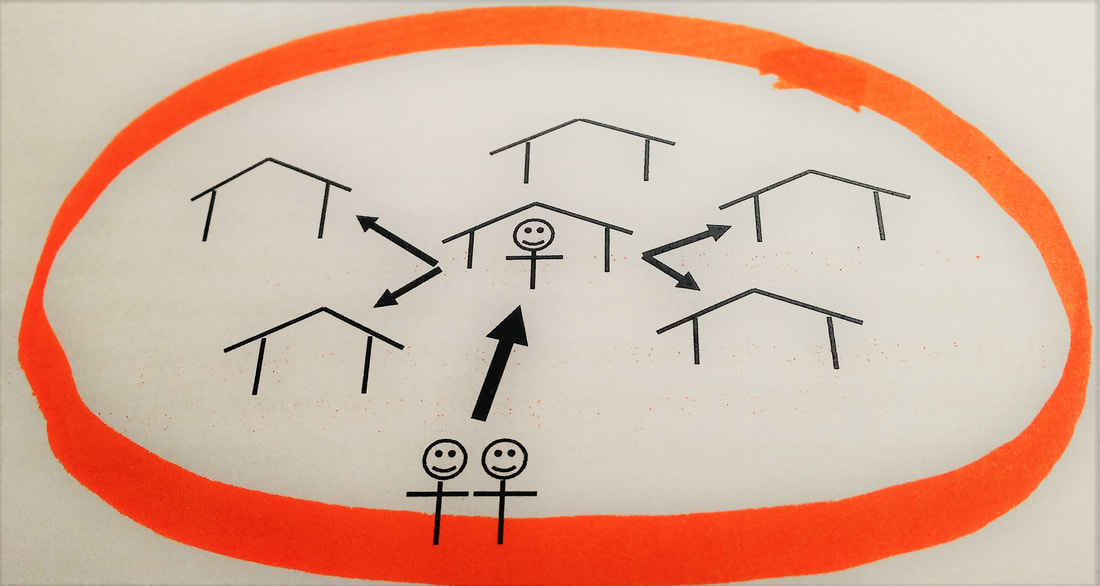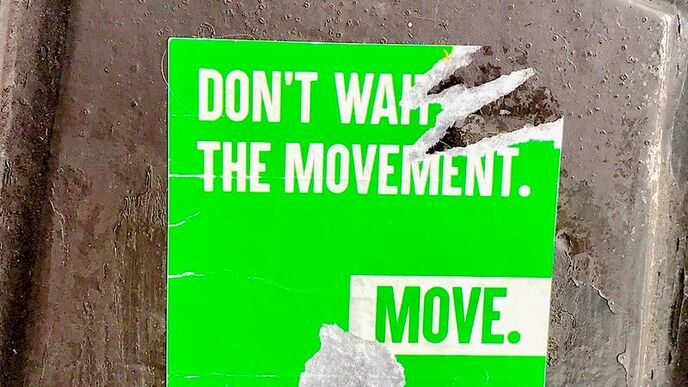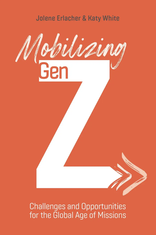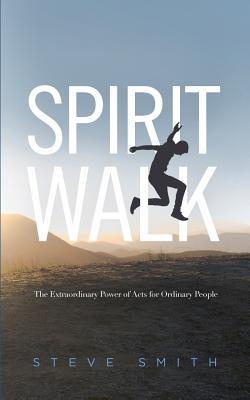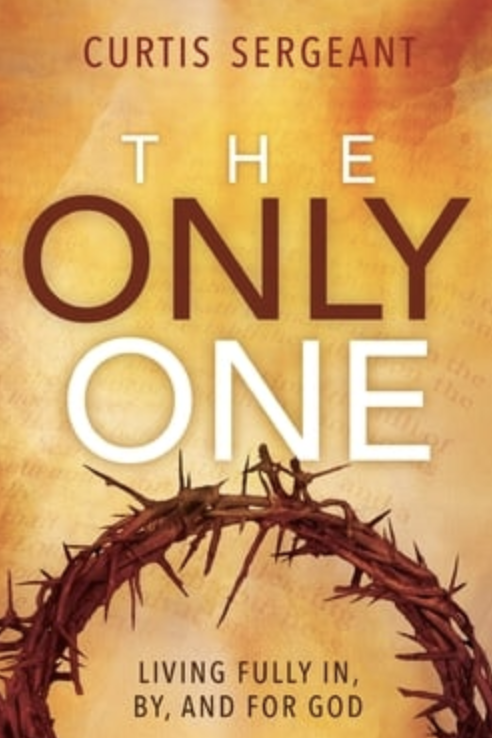|
Did Jesus give the Apostle Paul a strategy for reaching the nations? Yes, he did and it is a strategy for our day as well. Steve Addison often quips that we need to stop asking 'What would Jesus do?' and start asking another question: What did Jesus do? Luke 10:1-23 offers us a window into one of the things Jesus did and it is a window into both his methods of discipling his followers as well as a strategy he uses to reach into new areas with the gospel. It is a strategy that the Apostle Paul employs throughout his ministry and is especially visible on his second missionary journey as recorded in Acts chapters 16 - 18. This is of course not the only strategy that Jesus gives his followers nor is it the only strategy for reaching into new harvest fields that the Apostle Paul uses, but within Luke 10 are a number of examples and principles that we, like Paul, would do well to pay attention to and at the very least, try out. They are not the way we in the west usually go about things but they are the way that Jesus taught his first followers to take the gospel into new regions. Let's look at a few of the examples and principles from Luke 10. Pray for Harvesters In Luke 10:2 Jesus tells the 72 to pray for more workers. This is interesting because as sent ones, they are the workers. The implication seems to be that there are workers in the harvest! As Paul worked through Macedonia and Greece, the leaders of all of the churches that emerge in Acts 16 - 18 are new believers who came out of the harvest. Paul did not lead these churches. There is no mention of him even planting churches. Paul made disciples (Matthew 28:18-20) and churches emerged as new disciples were raised up and began to share the gospel and make disciples. Find the Person of Peace Jesus instructs the 72 to find a peaceful person, someone who welcomes them into their home. He gives them further instruction that, if a peaceful person cannot be found, they should brush the dust off of their feet and move on. It seems that there will be a God prepared person who welcomes them, or their won't be. The presence of that person or lack their of is out of their hands. It is a work of the Father who draws people to Jesus. Paul trusts Jesus' strategy. For Paul it looks like this: Enter a new town or context. Find the place where people gather - usually a synagogue. Preach the Gospel. Get kicked out. Discover that there are a handful of people who want to follow Jesus. When Paul proclaims the gospel there are always three responses as clearly articulated in Athens in Acts 17:32-33. When they heard about the resurrection of the dead, some of them sneered, but others said, “We want to hear you again on this subject.” At that, Paul left the Council. Some of the people became followers of Paul and believed. Paul knew that there would be three response:
Stay with the Person of Peace As part of Jesus' instructions, he also tells the 72 to not move around from house to house but rather to stay with the person of peace. Jesus does not tell us why we should stay, but in the example of Paul we see the fruit of staying in place. Paul is not the local who will establish the movement in each town. The local person - the cultural insider - will be the one to stay. Lydia, the Philippian Jailer, Jason in Thessalonica, the elders in Berea, Dionysius and Damaris in Athens, Aquilla and Priscilla in Corinth as well as Crispus the synagogue ruler and his entire household! These are the people who become the leaders of the gospel movements in each of their respective regions. Paul has stayed with them, he's shared meals with them and invested in raising them up to be disciples of Jesus! This is perhaps most clearly seen in Thessolonica where Paul spent just three Sabbaths [learn more]. Everywhere Paul goes he finds a person of peace, a God prepared person whom God is going to use to establish the local expression of faith. Paul has no plan to leave a “church planter” behind to lead the new church for a time. It seems that from the very beginning the plan is to have a new believer lead the church. These are just three of the principles from Luke 10 that Paul applies as he works to obey Jesus and make disciples. A deeper study of the sending out of the 12 in Luke 9, Matthew 10 and Mark 6 would be be helpful to further compare how Paul took the example of Jesus and applied it to his efforts to take the gospel to the very ends of the earth. If Jesus' example and the principles of Luke 10 were good enough for Paul, it seems we ought to at least look at these passages and explore what applying them to our current context might look like.
0 Comments
I remember growing up, my grandmother would tell stories of the waning days of the Great Depression and the first years of World War II. I was captivated by the way she and the whole country seemed to respond to the crisis of war and depression. She told stories not only of the young men who willingly signed up to defend freedom but also of the ways those who stayed behind stepped up to serve, sacrificially rationing and growing gardens and doing anything they could to support the war effort. Those stories left a longing in me to live a purposeful life of sacrifice and meaning. The Covid-19 pandemic is our crisis. For many of us, we are looking for purposeful ways to respond. Somehow, “stay at home and watch Netflix” just doesn’t seem all that meaningful, even though we know it is the best thing to do (at least the stay at home part). As followers of Christ then, what are the ways we can respond that are meaningful and in partnership with the mission of God. Nearly six billion people in our world do not yet call themselves Christians and over two billion don’t even have access to an opportunity to hear the gospel. Here are five different ways you can be a part of God’s global mission, even as you stay at home. LEARN As the global pause button continues to be depressed, take the extra time you have to learn more about God’s mission and how you can be a part of it. Here are several ideas:
ENCOURAGE Isolation and loneliness are real issues in a time of pandemic. I trust you are already doing your part to discover creative ways to encourage those in your neighborhood, your church family and your immediate family. But missionaries and our global brothers and sisters in Christ are also isolated in times like these. Here are a few ideas for encouraging them.
PRAY Too often, followers of Jesus underestimate the power of prayer. It seems that in the pandemic and the forced slowing of life, prayer would be the greatest response would could give to the Lord. Here are a number of resources to help you pray more.
GO Mission trips have been canceled, missionaries have had to return from the field and stay at home orders abound across the globe and yet the opportunity to go into the Muslim world has never been greater. Because of the Covid-19 pandemic, more people on every continent are home bound than ever in world history. They are isolated, alone, and wondering what tomorrow will hold. Hundreds of thousands of young Muslim men and women who speak English are also sheltering in their homes, smartphone in hand, surfing the Internet in search of answers, hope and friendship. What if they met you? Volunteer with Embassy and they will teach you how to connect online with Muslims in difficult to access nations. You will almost certainly be the first follower of Jesus they have ever met. Sign up for a free one hour introductory training or stop by the Embassy website to learn more. FILTER We live in a media saturated world. Messages come fast and furious from every device we own and many are wondering if we can trust any of the news we hear. How do we filter through all the nose? The reality is that we are all being discipled - being formed - by the messages that dominate our days. Because of this it is imperative that we shut off the noise and immerse ourselves in the word of God. As we do this, the word of God will increasingly become the filter through which all other messages have to pass. If the dominant source of messages in our day is our favorite right leaning or left leaning news outlet, it will become the filter, even filtering the way we read the Bible. Nobody is making you listen to the news or keep scrolling through your Facebook feed. Nobody is forcing you to not read your Bible. It’s a choice we all have to make. We have an opportunity to filter what we read, hear and see. As we do that and as we prayerfully seek God’s direction each day we will find the things we can do in this season of global pandemic and God will use us in his global purposes. "What can I do?" It's a question that Jesus' disciples all across the world are wrestling with during these unprecedented times. Covid-19 has locked us indoors and it seems the best way to love others is to stay away from them. These are indeed strange days. For many, you've spent the last years investing in the lives of friends who do not yet follow Jesus. You love them dearly. You've served them tirelessly and now, you can't see them. And so we ask, "Lord, what can I do?" For many the last years have been spent doing things for God. We serve the church. We help with programs. We feed the poor. We go to this event and that activity. We lead Bible study. We do, do, do. And so when the world comes to a halt, we ask, "Lord, what can I do?" For myself, this has been a journey into a lesson the Holy Spirit has been trying to teach me for the last few years. I'm a slow learner! I am by nature, a doer. Perhaps we all are. But in this moment, when "doing" has been in many ways stripped away, I've found myself wandering, wondering, worrying. Am I doing enough? Am I doing the right things? And who am I? The first week in particular was tough. I'd wander in and out of a sort of discombobulated haze, not knowing up from down, not knowing what I'd do with myself once I finished the next email I was writing or the call I was on. My "doer" was being battered and I didn't know what to . . . well, do. In it all I could hear the whisper of God in the distance, an inviting calm that, as the days wore on and my chaos subsided, I began to listen to and to recognize. Be my child. Be my friend. Be a member of my church. Be a citizen of heaven. Be my workmanship. Be my new creation. Be justified and righteous. Be secure in my hand. Be free from condemnation. Be with Me. Be with Me. Be with Me. How are you finding ways to simply be with Jesus this week? The book of Exodus begins with unimaginable hardship. Pharaoh, fearing the growing number of Hebrews in his kingdom, orders the execution of every newborn Hebrew boy. Babies are torn from their mother's arms and tossed murderously into the Nile River. And then Moses is born. Like many others, his mother hides him away for as long as she can, hushing his cries, hoping beyond hope for a way through this holocaust of the newborns. The Bible doesn't say why she does it, but his mother builds a little basket, coats it with tar and then sends her daughter off to the river with baby Moses in his tiny ark. I can imagine the scene. The sister comes to a bank along the river where the reeds have grown thick. She steps into the water, feet sinking in mud and begins pushing her way through the razor sharp stems. She fights to keep her balance as the stench of the river mud floats up around her. Finally she comes to a place where the reeds thin out. They've been cleared away so that the pharaoh's daughter can come down and bath. The sister sets the basket gently in the water where it floats, still hemmed in by the reeds but clearly visible to anyone who might come down to the water. She backs away, far enough not to be noticed yet still able to keep an eye on her brother. Exodus 2:4 says, "His sister stood at a distance to see what would happen to him." There she stands in the muck and mud, scratched by reeds, swatting flies and mosquitoes. She waits and she watches, hoping to see in the water the ripples of redemption. Exodus 2:4 is filled with expectation. Surely something will happen. Surely God will act. And God does act. He saves Moses and sets the stage for the freeing of the Hebrew slaves. Many of us find ourselves in the muck and mud of our present moment. We're battered and bruised by the Covid-19 pandemic. We look around and it seems the bad news grows daily. Some of us have experienced the loss of a loved one, the loss of a job, the loss of a dream. Everyone it seems will experience some sort of loss. While we need to mourn with those who mourn in this season, as followers of Christ we can also look expectantly for the ripples of redemption. Our God is a redeemer God. The next few months may not be easy. They may be the hardest times we have ever lived through, but if we look to the scriptures we see a pattern: God uses hard times to set the stage for unimaginable good. Joseph is thrown into a pit, sold into slavery and tossed in a dungeon. All before God rescues him and uses him to save the whole world from famine. Stephen is brutally murdered, stoned in the public square. And yet the very next moment, as his friends mourn his loss, he is with the risen Christ in heaven. As persecution breaks out, the good news of Jesus, the gospel, begins to spread all across the Roman world as fleeing Christians share about Jesus everywhere they go. God is a redeemer. Whether our current calamities are caused by God's discipline, Satan's attack or are merely the by products of a broken world, God can and will redeem it for our good and for His glory. And so as we look to him, as we hope in Him, as we trust in Him, we will see the ripples of redemption. |
The E2E Community
Categories
All
Good Books
Archives
April 2024
|
Proudly powered by Weebly

